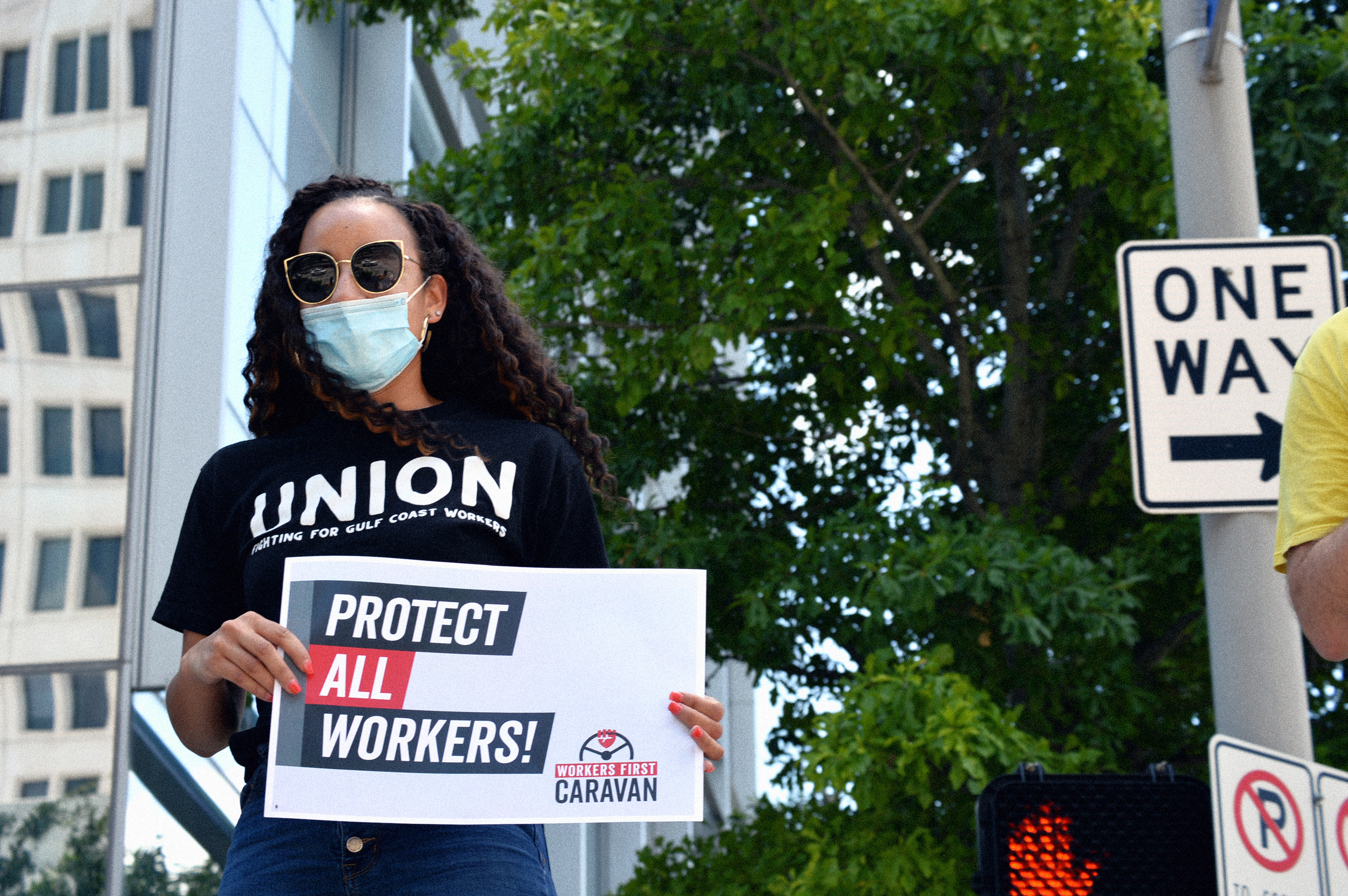Good Afternoon. Thank you all for joining us for the launch of this year’s AFL-CIO Executive Paywatch website. And a big thank you to Brandon Rees, the AFL-CIO’s Deputy Director of Corporations and Capital Markets, for his work on this important project.
This year we are highlighting the role of Artificial Intelligence in transforming our economy and its connection to CEO pay.
But first, the numbers. In 2022, the average CEO-to-worker pay ratio of S&P 500 companies was 272-to-1.
CEOs of S&P 500 companies received an average of $16.7 million in total compensation. $16.7 million a year.
That’s the second-highest level of CEO pay in Paywatch history behind last year’s record-breaking average while U.S. workers’ real hourly wages fell for the second year in a row.
When looking at this year’s highest paid CEOs – those who received over $100 million in total compensation – we noted that they are all actively working to incorporate Artificial Intelligence into their business models.
It’s not just the tech giants like Oracle and Google’s parent Alphabet. It includes companies that recently had their IPOs like the legal services company CS Disco and the human resources company Workday.
It includes the rental car company Hertz, which has invested in a self-service rental car system that uses AI technology. And it includes the highest paid CEO in this year’s Executive Paywatch database. Stephen Schwarzman of the private equity firm Blackstone received over $253 million in total compensation in 2022 – a quarter of a billion dollars in just one year. It’s almost inconceivable.
In 2018, he made a foundational gift to MIT to advance the ethical study of computing and artificial intelligence, and its implications on industries and business. He made a similar donation to Oxford a year later.
He’s betting on the AI revolution, and it’s happening now. It’s going to affect how we work and live, and nearly every company is starting to grapple with its potential to transform our economy.
The AI revolution has the potential to unleash broad based prosperity that improves working conditions and lifts us all up.
But if left unchecked, AI can increase economic inequality and undermine job security. An estimated 300 million jobs are at risk of automation by AI including nearly half of all jobs in the United States.
We are already seeing AI algorithms being used to determine who is qualified for a job, who is worthy enough for additional medical care, and who can afford to buy a home and where.
In some industries, AI is making HR decisions about hiring, scheduling, task assignment, performance reviews, and even terminations.
It doesn’t have to be this way, and working people are starting to fight back.
Some 160,000 television and movie performers have joined screenwriters on strike against the entertainment industry giants. A major factor of the strike is how AI can be used in the film and television industry.
The Writers Guild of America has called AI chatbots “plagiarism machines” and rightly so because they can be trained on human created scripts to create so-called “new” content.
SAG-AFTRA fears that deep fake AI technology threatens to not just replace background actors, but can even be used to create entirely synthetic performances. Performers are being asked to sign away the rights to their own likeness as a condition of employment so that the studios can add to their profits by digitally creating new content without them.
Writers not writing. Actors not acting.
And their fight is our fight.
While the CEOs of the movie and television studios are raking in tens of millions of dollars in compensation, they are refusing to give entertainment industry workers a voice in how AI will be used.
The choice about how we use AI is before us right now. Will AI be used to enrich corporate CEOs and tech billionaires? Or will the productivity gains of AI be shared with working people to make our jobs easier and raise living standards?
Let me be clear. The labor movement is not against technological change.
Throughout our history — in every industry — we’ve not only been able to adapt to new tech, we’ve been at the center of technological change. We’ve evolved with automation and new technology, and bargaining over how they’re implemented is a way of life.
But we are against AI being adopted without giving workers a voice in how it will be designed, developed and used. And unions are the best way for workers to have a voice on the job in these decisions.
It’s the key to making sure new technology is developed and used in a way that benefits workers, creates opportunity, addresses systemic inequities, and creates and sustains good union jobs.


